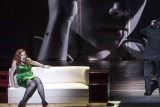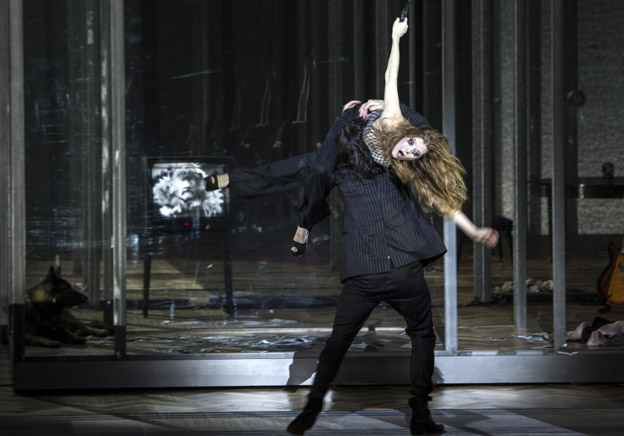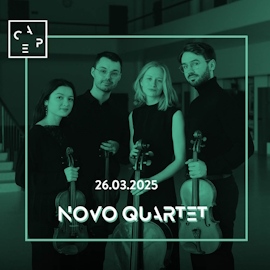The timing of the Béla Bartók’s Bluebeard’s Castle is a big challenge for opera houses, forced to couple this opera with a second score, or to imagine a conceptual space layout like the attractive choreographic proposal of Pina Bausch in Aix in 1998, for example. In choosing the turbulent stage director Krzysztof Warlikowski, Stéphane Lissner confirms the change of artistic orientation at the Paris Opera, after a long period of lethargy in scenographic options. Warlikowski added Poulenc’s La Voix Humaine as second piece of an evening, which unfortunately is not the best among Warlikowski’s productions.
Bluebeard’s Castle starts with a silent traditional magic trick in pure cabaret tradition: the turn of levitation, the appearance of the dove and rabbit. The sets and costumes by Malgorzata Szczesniak, lighting by Felice Ross… everything recalls the memories of Vec Makropulos, Iphigenia in Tauris or even Lulu. By limiting his work to an atmosphere made of recycling own good recipes, Krzysztof Warlikowski does not reach the proliferation of ideas and images he has demonstrated in those productions. The extracts from Jean Cocteau’s The Beauty and the Beast could have been better integrated to justify the link between the two opuses.
In Francis Poulenc’s La Voix Humaine it is impossible to find the imaginary echoes that would highlight the interest of this matching. Jean Cocteau’s libretto shows a very limited interest despite Barbara Hannigan’s efforts to impose it through an expressionist acting. There is no phone in this monologue only the enigmatic appearance of the murdered lover. The audience gradually understands what is happening when a bloodied actor emerges from the back of the stage to end up on the couch beside Hannigan at the very moment when she commits suicide.
Barbara Hannigan’s unclassifiable voice expresses a hysterical spoken singing. With the volume and depth of her phrasing, Ekaterina Gubanova (Judith) wins over the dark voice of John Relyea, a melancholic and not much involved Bluebeard.
Esa-Pekka Salonen sets the smooth and bright sound of the Orchestra of the Paris Opera against the darkness of the staging. This has the merit of giving symphonic coherence to the production despite light brass and too shy strings. David Verdier
Béla Bartók (1881-1945)
Le Château de Barbe-Bleue, lyrical drama in one act (1918)
Booklet: Béla Balázs
Francis Poulenc (1899-1963)
La Voix Humaine, lyrical tragedy in one act.
Libretto: Jean Cocteau
Orchestre de l’Opéra national de Paris
Conductor: Esa-Pekka Salonen
Stage director: Krzysztof Warlikowski
Sets and costumes : Małgorzata Szczęśniak
Lighting: Felice Ross
Videos: Denis Guéguin.
With: Barbara Hannigan (Elle), John Relyea (Barbe-Bleue), Ekaterina Gubanova (Judith)























